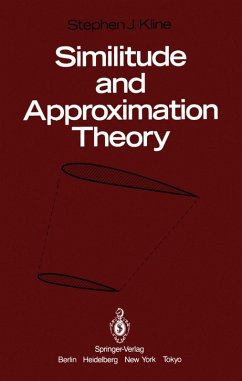There are a number of reasons for producing this edition of Simili tude and Approximation Theory. The methodologies developed remain important in many areas of technical work. No other equivalent work has appeared in the two decades since the publication of the first edition. The materials still provide an important increase in understanding for first-year graduate students in engineering and for workers in research and development at an equivalent level. In addition, consulting experiences in a number of industries indi cate that many technical workers in research and development lack knowledge of the methodologies given in this work. This lack makes the work of planning and controlling computations and experiments less efficient in many cases. It also implies that the coordinated grasp of the phenomena (which is so critical to effective research and develop ment work) will be less than it might be. The materials covered in this work focus on the relationship between mathematical models and the physical reality such models are intended v vi Preface to the Springer Edition to portray. Understanding these relationships remains a key factor in simplifying and generalizing correlations, predictions, test programs, and computations. Moreover, as many teachers of engineering know, this kind of understanding is typically harder for students to develop than an understanding of either the mathematics or the physics alone.
Dieser Download kann aus rechtlichen Gründen nur mit Rechnungsadresse in A, B, BG, CY, CZ, D, DK, EW, E, FIN, F, GR, HR, H, IRL, I, LT, L, LR, M, NL, PL, P, R, S, SLO, SK ausgeliefert werden.


